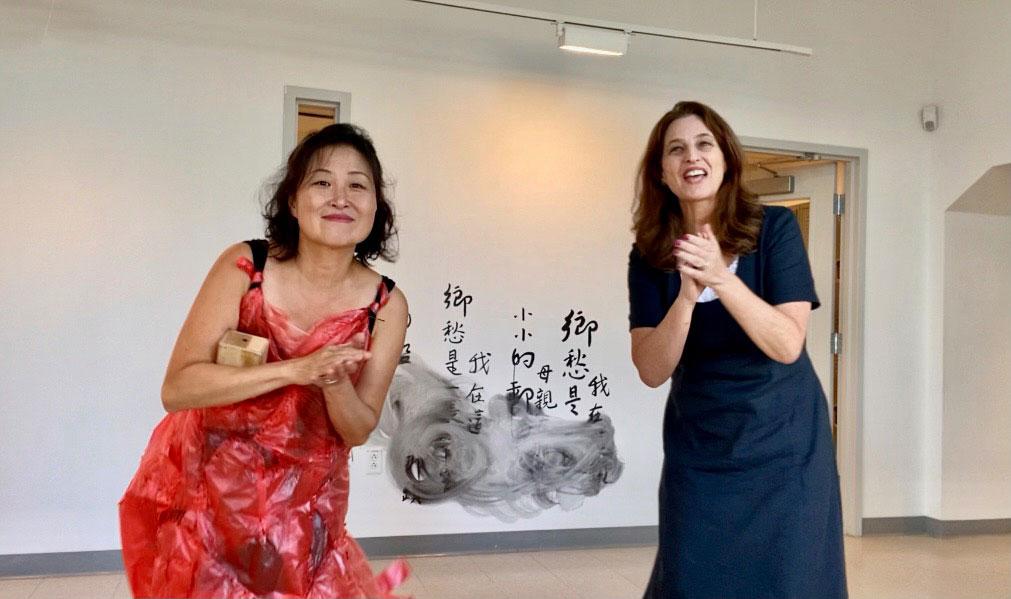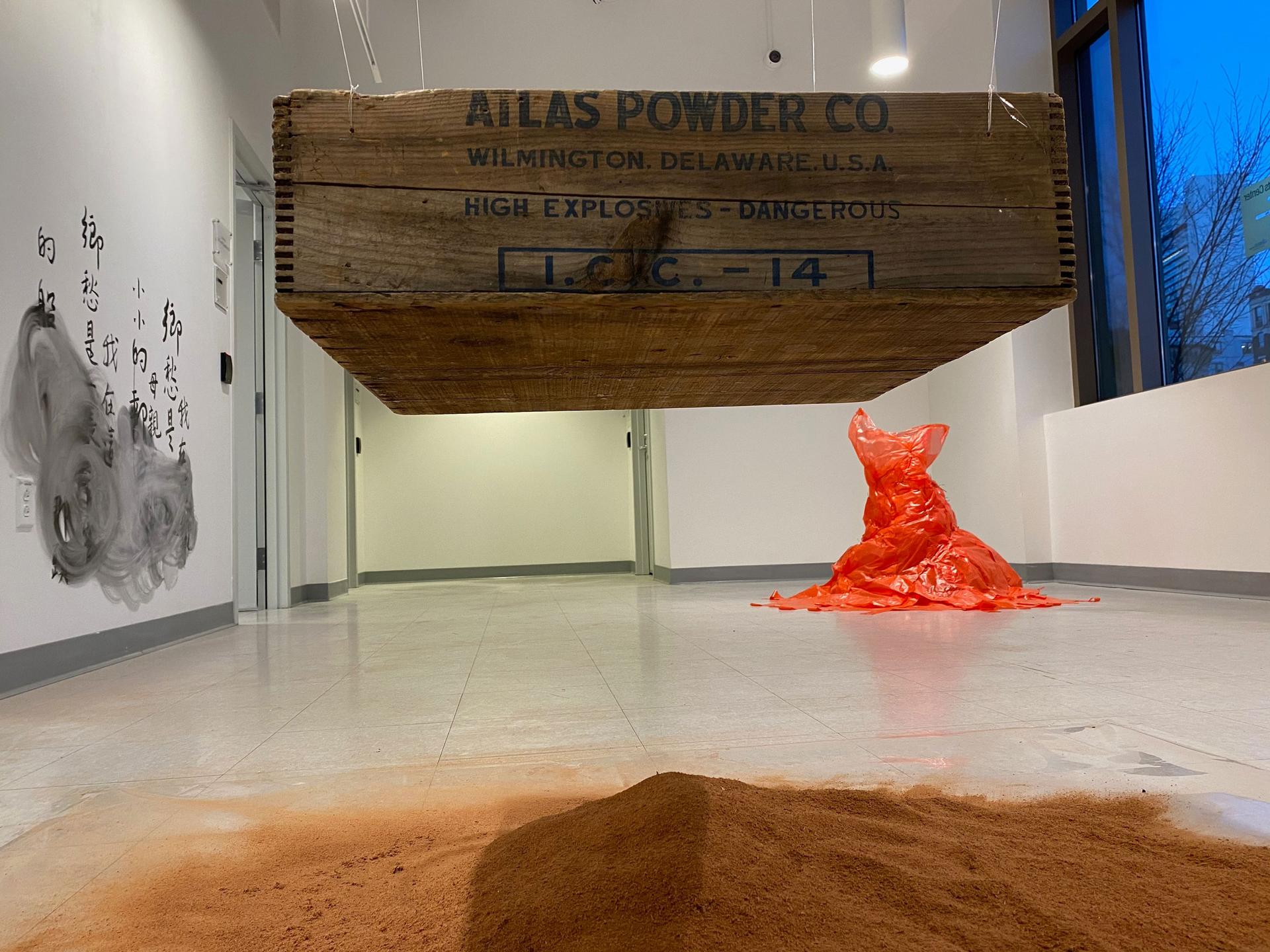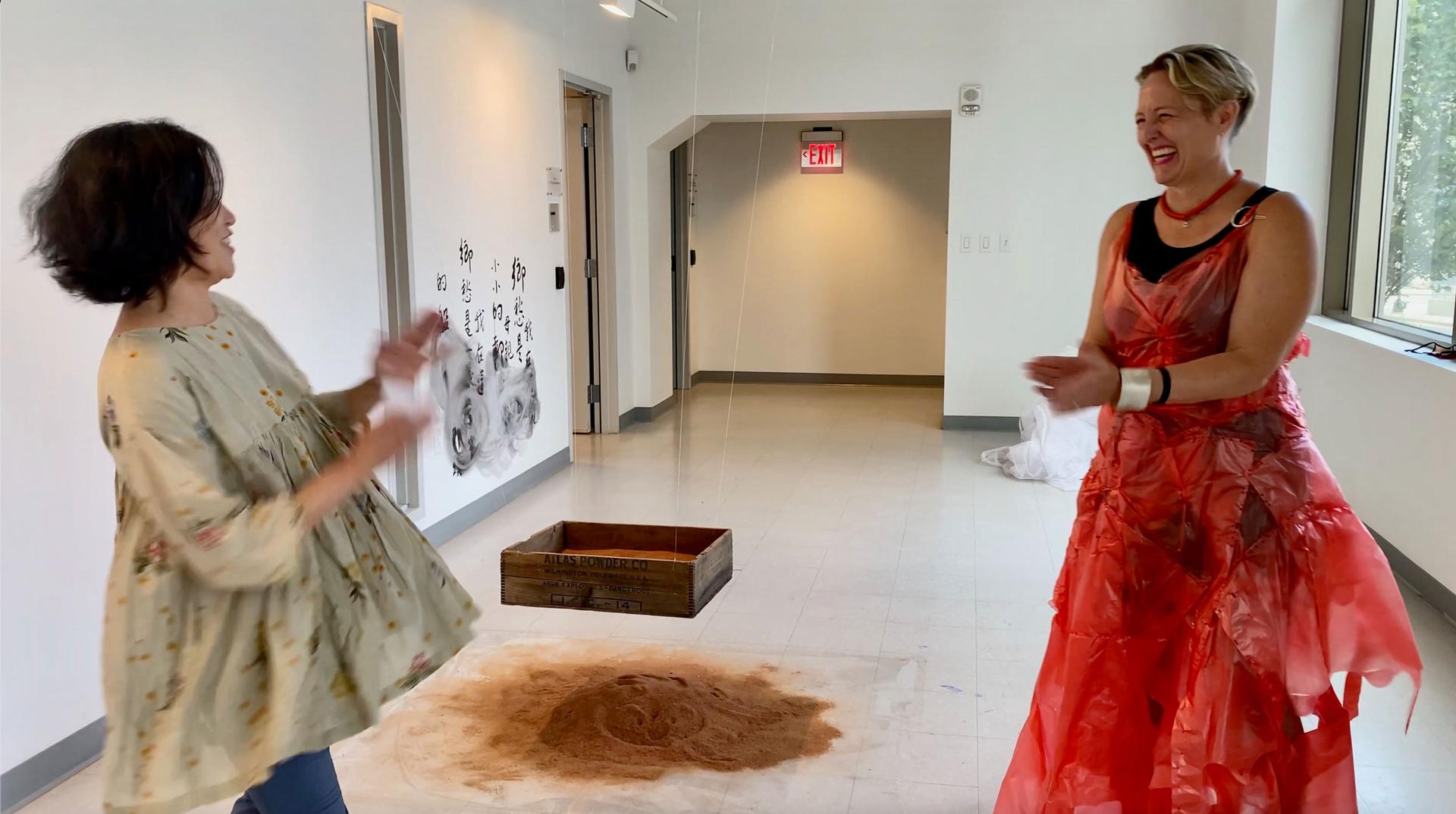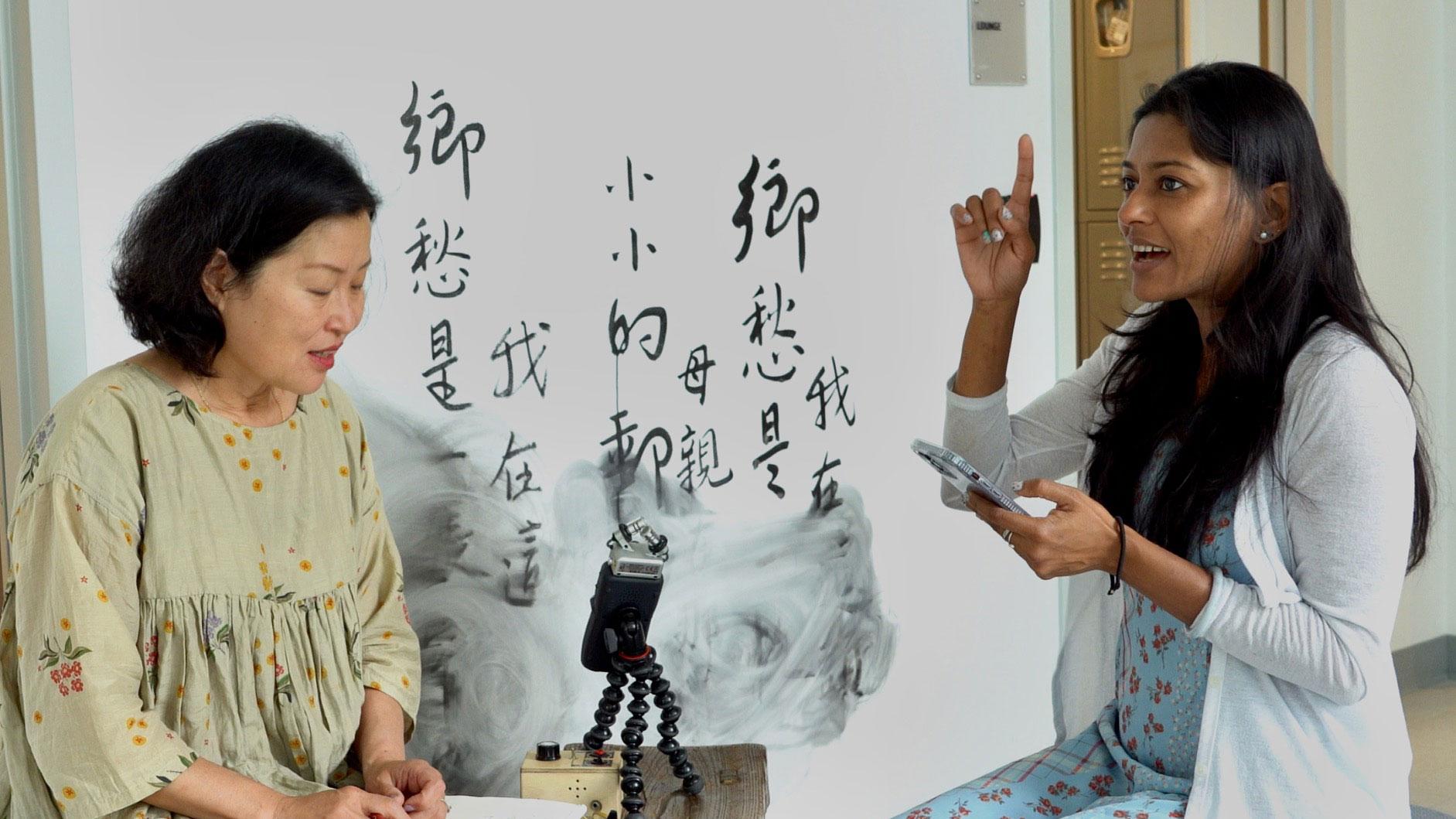Opera divas sometimes have to sing in languages that aren’t their native tongue. So do popular singers. The Beatles sang in German in their early years. Today, BTS sings in Japanese as well as their native Korean.
Is it easier to sing than speak in a foreign tongue? And what is the difference between singing and speaking?
Related: The tiny but mighty hyphen: Does it unite or divide?
Taiwan-born artist Wen-hao has put that to the test as part of her exhibit “Home on Our Backs,” about the immigrant experience, at Boston’s Pao Arts Center.
Tien, who has lived in the US for 33 years — much of that time in Boston — wanted to explore the sound of homelands as part of the exhibit. So, she started inviting people from around the world into the exhibition space to teach her songs from their places of origin.
Among the musical numbers she learned: a Dutch Indonesian song, a Sanskrit chant, a Shaker hymn, a French song, and the “Happy Birthday” song sung in Brazilian Portuguese (which Tien now considers far superior to any other version).
Related: From Argentina to US to Spain: A personal history told through childhood audio diaries

For Tien, learning to sing these songs — even when she didn’t fully understand the lyrics or the cultural context — was a highly emotional experience.
That didn’t surprise William Beeman, emeritus professor of anthropology at the University of Minnesota. He said singing is “enhanced communication.”
“When you sing — when you break into song — you’re actually overflowing with emotional feeling.”
“When you sing — when you break into song — you’re actually overflowing with emotional feeling,” Beeman said.
Related: Different cultures understand ‘thank you’ in different ways, language professor says
He knows this in a personal way. As well as his career in academia, Beeman was an opera singer for a time. He said that learning to sing can be a bit like becoming a young child again — and it often sparks childhood memories.
“The first thing that a teacher has to do in order to be able to get a person to sing is to kind of regress to the time when they were 4 or 5 years old,” he said. That is usually a time when people can sing “freely and openly without any inhibition.”
Which is also what Wen-hao Tien taps into with her “Teach Me a Song” project. The songs tend be old ones — learned at a young age.
Many of the song-learning sessions were held at Boston’s Pao Arts Center. One song was an especially big challenge: the “Porgi Amor” aria from Mozart’s, “The Marriage of Figaro.”
Her teacher, Suzi Hamill, drew on her experience as a one-time opera singer. Hamill had Tien go through a series of breathing exercises. Then they both chanted the lyrics to a set rhythm. Finally, they worked on the melody of the first couple of lines.
After Tien sang those lines — and came close to nailing them — Hamill asked, “Are you sure you’re not an opera singer?”

Tien’s exhibit also features her artwork, including an elaborate dress made of red plastic bags.
The inspiration sprang from a family visit and a clutch of red plastic bags from a grocery store nearby to the exhibition space, where her parents always shopped.
“My parents used to visit me from Taiwan,” Tien said. “The first thing they would do when they arrived is to take the subway and go to Chinatown.”
They’d go to a grocery store in Boston’s Chinatown and buy a ton of food. Tien remembers the last time they did this was not long before her father died.
“I was in my apartment and it was getting dark,” she recalled. “I looked out the window and saw two old people. Both were carrying as many bags as they could possibly hold.”
She knew it was her parents because of the bags.
That Chinese grocery store, like many others, used red plastic shopping bags. Tien said her parents looked like they were carrying “a gigantic balloon” in each hand.
“That’s my last memory of my parents visiting me from far away,” she said. “The image of them carrying many, many red plastic bags. I have a feeling for the bags.”
Tien filed this in the back of her mind for years until these memories eventually resurfaced. She decided to make a dress out of about 35 of those bags, stitched and branded together in the style of a ball gown.
The dress became a focal point during one singing session with Hamill, when, with Tien’s permission, Hamill put on the plastic bag dress.
Not only was it an arresting sight, but all those plastic bags made a captivating crinkling noise as Hamill moved about the room.

Tien has made a second dress out of red plastic bags. She hopes to give that one to Boston’s new mayor, Michelle Wu.
Like Tien, Wu was born to Taiwanese parents.
For more on Tien’s “Teach Me a Song” project, check out “Subtitle,” a podcast about languages and the people who speak them. “Subtitle” is supported by a major grant from the National Endowment for the Humanities.
